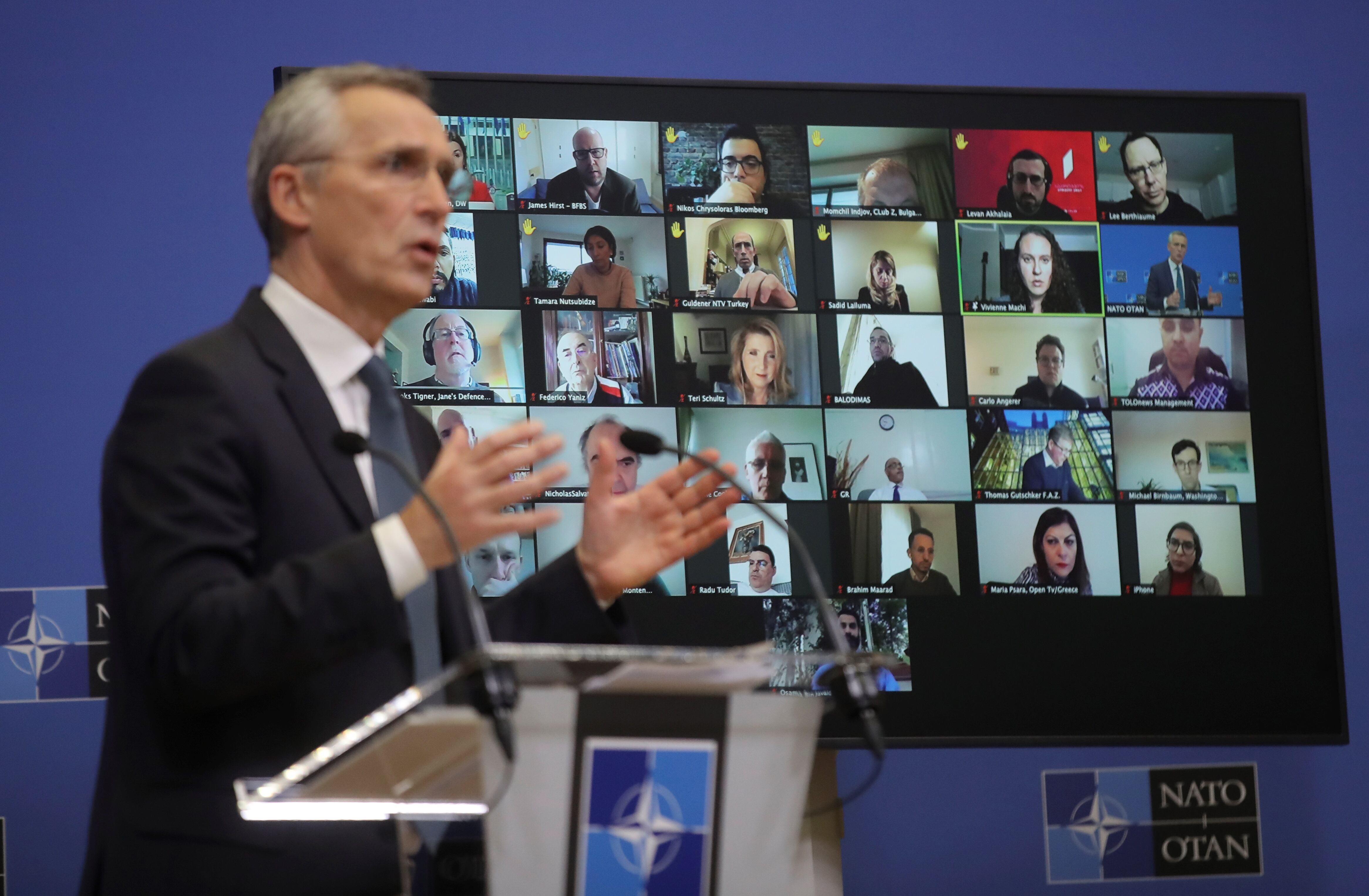Updated 2/16/21 at 5:00 pm EST with comment from NATO spokesperson.
WASHINGTON — As Defense Secretary Lloyd Austin attends his first NATO ministerial this week, he will carry a message seeking a “revitalized” relationship between America and its European allies — but will not back down on pushing for greater military spending, two senior defense officials said Monday.
Virtual though it may be, the ministerial is the first true international event for Austin since he took office. The defense officials, speaking to media ahead of the event, made it clear they he plans to use that opportunity to convey a different tone than the Trump administration, which was famously combative with the NATO nations over a 2 percent GDP spending target on defense.
“I do think that you’re going to see at this ministerial a real focus on revitalizing the U.S. relationship with the alliance, a change in our tone and approach, and a desire to work with our allies and partners,” the first official said.
RELATED

Several times during the press call, the officials stressed the focus on “consulting” with allies, particularly when it comes to any changes in force posture. The phrasing represents a clear signal from the Biden administration after the Trump administration announced plans to shift 9,500 troops out of Germany with what European officials described as little or no consultation with regional leaders.
Those troop withdrawals have now been frozen as Austin and his team review America’s force posture globally. Asked whether troops that were planned to shift to Poland would be changed, the first official said “our posture in Europe is critical to us national security interests. And I would in no way expect to see anything that would look like a withdrawal” from Poland.
While Austin may be carrying a different tone than Trump officials did when visiting NATO, the focus on getting allies to keep defense spending up will continue.
“I think what you’re going to hear is that we expect all allies to live up to this commitment. It’s a commitment we have all made. We’re appreciative of those who have moved in this direction, and we applaud that, but we all know that there’s more work to be done,” the first official said.
That may set up an early stress point with some NATO nations, who have long argued that the 2 percent figure is flawed and that countries who take more direct action, such as deploying forces abroad to support NATO missions, should receive more credit in that regard.
NATO secretary general Jens Stoltenberg on Monday stated that “burden-sharing is about spending 2 percent, but burden-sharing is also about contributions and capabilities.” However, a NATO spokesperson stressed that those comments were in line with previous statements from Stoltenberg, noting there is “absolutely no weakening of the commitment to 2 percent.”
Stoltenberg, who plans to use the ministerial to discuss several proposals as part of his NATO 2030 plan, also stated that America’s allies have contributed a cumulative $190 billion to the alliance since 2014, and that nine members are now expected to spend 2 percent or more of their GDP on defense.
Noted the first senior defense official: “You’ve probably heard the secretary-general say, he’s got these three C’s he talks about: cash, contributions and capabilities. At the end of the day, cash is inextricably linked to those other two. And if we don’t invest enough cash today, we’re just not going to be ready for tomorrow’s challenges.”
Aside from big-picture NATO issues, expect significant discussion between military leaders on the future of forces in Iraq and Afghanistan. While the Trump administration lowered troop levels in both countries to 2,500 shortly before leaving office, NATO leaders are watching carefully for any signs that America may look to increase those force levels going forward.
“As you know, of course, the department is participating in an administration-wide review. And there have not been any decisions on Afghanistan troop levels,” the first official said. “The United States and NATO went into Afghanistan together, we will adjust together, and if the time is right, we will leave together.”
During the meeting, there will be a session focused on emerging and disruptive technology, including cyber issues. That issue, already a major focus for the alliance, has received a boost following the recent SolarWinds hack of U.S. government institutions, widely attributed to Russia.
To try and get a handle on the broader cyber concerns, the second official said that they would be bringing in representatives from Sweden, Finland and the European Union – partners, but not formal members of the alliance – for part of that discussion.
Aaron Mehta was deputy editor and senior Pentagon correspondent for Defense News, covering policy, strategy and acquisition at the highest levels of the Defense Department and its international partners.







